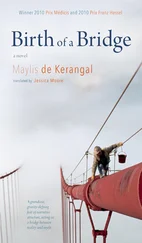Maylis de Kerangal - The Heart
Здесь есть возможность читать онлайн «Maylis de Kerangal - The Heart» весь текст электронной книги совершенно бесплатно (целиком полную версию без сокращений). В некоторых случаях можно слушать аудио, скачать через торрент в формате fb2 и присутствует краткое содержание. Год выпуска: 2016, ISBN: 2016, Издательство: Farrar, Straus and Giroux, Жанр: Современная проза, на английском языке. Описание произведения, (предисловие) а так же отзывы посетителей доступны на портале библиотеки ЛибКат.
- Название:The Heart
- Автор:
- Издательство:Farrar, Straus and Giroux
- Жанр:
- Год:2016
- ISBN:9780374713287
- Рейтинг книги:5 / 5. Голосов: 1
-
Избранное:Добавить в избранное
- Отзывы:
-
Ваша оценка:
- 100
- 1
- 2
- 3
- 4
- 5
The Heart: краткое содержание, описание и аннотация
Предлагаем к чтению аннотацию, описание, краткое содержание или предисловие (зависит от того, что написал сам автор книги «The Heart»). Если вы не нашли необходимую информацию о книге — напишите в комментариях, мы постараемся отыскать её.
The Heart
The Heart
The Heart — читать онлайн бесплатно полную книгу (весь текст) целиком
Ниже представлен текст книги, разбитый по страницам. Система сохранения места последней прочитанной страницы, позволяет с удобством читать онлайн бесплатно книгу «The Heart», без необходимости каждый раз заново искать на чём Вы остановились. Поставьте закладку, и сможете в любой момент перейти на страницу, на которой закончили чтение.
Интервал:
Закладка:
* * *
She must have screamed quite loud. Loud enough, in any case, for her daughter to reappear, slow-moving and serious-faced, eyes wide, standing in the doorway of the bedroom, her head leaning against the door frame, staring at her mother, who didn’t see her but was panting like a dog, movements frenzied and face twisted, tapping frantically at her cell phone to call Sean, who wasn’t answering — pick up, pick up for fuck’s sake — her mother hurriedly dressing, in boots, winter coat, scarf, then diving into the bathroom to splash cold water on her face, not bothering with any moisturizer or makeup, and only then, lifting her face from the sink, did she see her reflection in the bathroom mirror — irises frozen under swollen eyelids, as if she had suddenly got bags under her eyes, Signoret eyes, Rampling eyes, the green flash at the level of her eyelashes — and feel a sudden dread at not recognizing herself, as if her disfigurement had begun, as if she was already another woman. Part of her life — a huge part, still warm, compact — was detaching itself from the present, toppling into the past, where it would fall away, disappear. She sees falling rocks, a landslide, fault lines dividing the earth beneath her feet: something closes, something is now out of reach. Part of the cliff separates from the plateau and collapses into the sea; a peninsula slowly moves away from the continent and drifts toward the horizon, alone; the door to a cavern of wonders is suddenly obstructed by a rock; in the blink of an eye, the past has grown larger, an ogre gobbling up life, and the present is now a line so thin it is barely visible, beyond which lies the great unknown. The ringing of the telephone broke the continuity of time, and, standing in front of the mirror, where her reflection stares back at her, hands clinging to the edge of the sink, Marianne is petrified by the shock.
Picking up her bag, she turned around and fell over her daughter, who had not moved. Oh Lou. The child lets herself be hugged without understanding, but everything in her look, her attitude, is interrogating her mother, who evades the question — put on your socks, take a sweater, come along — and, as the door bangs shut at the top of the stairs, the thought suddenly enters Marianne’s head — an icy slash — that the next time she unlocks this door she will know the truth about Simon. On the next floor down, Marianne rings the doorbell of the apartment below hers, then rings it again — it’s Sunday morning, everyone’s sleeping — and a woman answers it. Marianne mutters the words hospital, accident, Simon, serious, and the woman, wide-eyed, nods her head and whispers gently I’ll take care of Lou. In her pajamas, the little girl enters the apartment, waving to her mother through the half-open doorway, then suddenly changes her mind and rushes out to the staircase, calling: Mama! So Marianne runs back upstairs, kneels next to her daughter and hugs her tight, then, looking deep into her eyes, repeats the cold litany: Simon, surfing, accident, I’ll be back, back soon. Unfazed, the child kisses her mother’s forehead and returns to the neighbor’s apartment.
After that, she had to fetch her car from the underground parking garage: panic-stricken, she’d had to make two attempts to extricate the vehicle from its narrow space, maneuvering it carefully, millimeters to spare on either side, until she reached the ramp that sloped up to the street. The garage door opened and, dazzled, she blinked several times. The daylight was white, the sky that milky color it has when it snows, though there was no snow — a dirty trick. Marshaling her forces, her reason, she concentrated on where she had to go, driving east through the upper part of town, following the perfectly straight roads — Rue Félix-Faure then Rue du 329 then Rue Salvador-Allende — the way arrowing forward and only the names changing as she reached the suburbs of Le Havre. Opulent villas overlooking the garbage dump of the poor part of town, vast and perfectly apportioned gardens, private institutions, and somber-colored sedans, gradually changing to decrepit buildings and suburban houses with verandas and little gardens, small cement courtyards where mopeds and beer crates stood in puddles of brown rainwater, and now delivery vans were weaving slowly past sidewalks too narrow for two people to walk side by side; she drove past the Tourlaville Fort, the funeral parlors across from the cemetery, the marble headstones behind tall windows, spotted a bakery with lit windows in Graville, an open church — and crossed herself.
The city was sleeping, but to Marianne there was something menacing about it; she had the sailor’s fear of a calm, flat sea. It even seemed to her that the space around her was bulging slightly, as if to contain the phenomenal energy lurking inside the matter, that internal power that might easily turn to dazzling destructive power with the splitting of a few atoms; but the strangest thing — she came to this conclusion when she thought about it later — was that she saw no one else at all that morning, not a single other car, not a single human being, not a single animal — no dog, cat, rat, insect. The world was deserted, the city as empty as if its inhabitants had all taken refuge in their homes to protect themselves from a catastrophe, as if the war had been lost and they were all hiding behind their windows to watch the enemy troops file past, as if they were all quarantined out of fear of some contagious fate, as if they sensed her anguish and fled from it. Metal shutters were closed behind store windows, blinds lowered. The only things that greeted Marianne as she drove were the seagulls, breaking ranks above the estuary, circling above her car, which, seen from above, was the sole moving object in the entire landscape, a little rectangle that seemed to gather up what little life remained on earth, powered forward like a pinball — irreducible, solitary, shaken by spasms. The outside world slowly expanded, seemed to tremble palely, the way the air above a desert or a sun-baked road trembles palely. The landscape changed into something fleeting and distant, turning white, almost vanishing completely, while Marianne drove with one hand on the steering wheel, the other hand wiping away the tears that ran down her face, eyes on the road, and her mind tried to ward off the intuition that had been solidifying inside her ever since the phone call, an intuition that shamed her, hurt her, and then the road dipped down toward Harfleur, the exit for Le Havre, the expressway interchanges where she carefully overtook the car in front of her, passed a forest, motionless and enclosed, and finally reached the hospital.
* * *
In the parking lot, she turned off the engine, then tried again to make a phone call. Sitting tense, she listened to the quick, regular ringing noises that the call produced and visualized its progress: the sound speeding away to the south of the city, carried on one of those radio waves that formed the invisible matter of the air, crossing from one relay mast to the next, riding an ever-changing frequency, entering the port area, then an industrial wasteland located near the oceanside dock, snaking past the construction sites of buildings under renovation until at last it connected to that freezing warehouse where Marianne had not been for a long time; she tracked the call as it weaved between the pallets and the wooden beams, between chipboard planks and plywood sheets, merging with the sound of the wind as it was gobbled up there by the sound of splitting tiles, mixing with the whirlwinds of sawdust in the corners, with the smells of polyurethane glue, marine varnish and resin, piercing the fibers of the piled-up work T-shirts, the thick leather gloves, ricocheting between the tin cans used as paint-brush holders, ashtrays, kitchen drawers — a shooting gallery at the fair — the continual vibrations of the circular saw, against the vibrations of the song blasting from an old stereo — Rihanna’s “Stay”—against everything that juddered, pulsated, whistled, including the man working there, Sean, who was at that moment leaning over a cradle with an aluminum rail and stops set at a certain distance for cutting slats of the same width. He was a supple, muscular man with tanned hands who moved slowly, leaving footprints on the powdered floor. Wearing a face mask and ear protectors, he was whistling, the way a decorator whistles as he stands at the top of a ladder, paintbrush in hand, the same shrill melody over and over again. The call reached the inside pocket of a parka hanging close by and triggered a ringtone in the casing of a cell phone — the sound of rain landing on a lake or a sea — a ringtone he had downloaded the week before, and which he did not hear now.
Читать дальшеИнтервал:
Закладка:
Похожие книги на «The Heart»
Представляем Вашему вниманию похожие книги на «The Heart» списком для выбора. Мы отобрали схожую по названию и смыслу литературу в надежде предоставить читателям больше вариантов отыскать новые, интересные, ещё непрочитанные произведения.
Обсуждение, отзывы о книге «The Heart» и просто собственные мнения читателей. Оставьте ваши комментарии, напишите, что Вы думаете о произведении, его смысле или главных героях. Укажите что конкретно понравилось, а что нет, и почему Вы так считаете.












